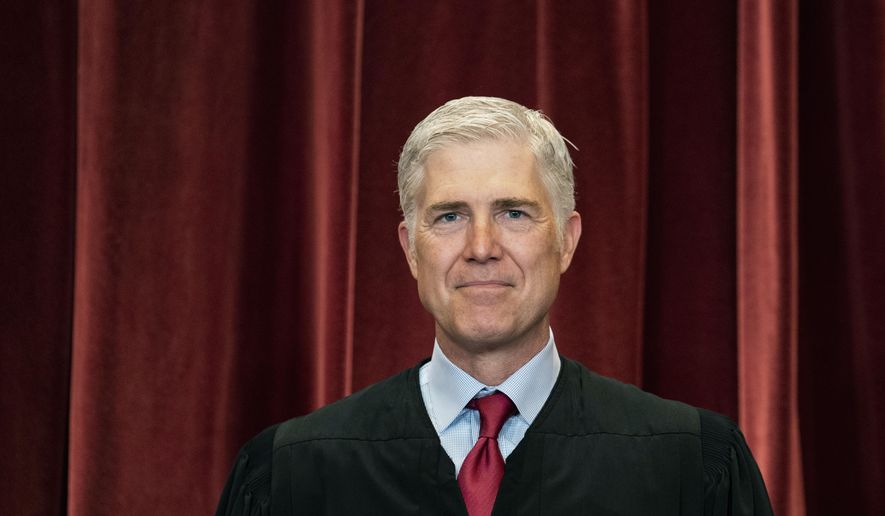OPINION:
Editor’s note: This is one in a series examining the Constitution and Federalist Papers in today’s America.
In a recent case before the Supreme Court, several Republican-led states argued in Arizona v. Mayorkas that the Title 42 orders — which essentially allow the federal government to prevent certain people from coming into the country during a public health emergency because of the fear of communicable disease (in this case, COVID-19) — must remain in place. The high court agreed with the states, but Justice Neil M. Gorsuch wrote a dissent in which he was joined by Justice Ketanji Brown Jackson. Here is the text of that dissent:
“From March 2020 to April 2022, the Centers for Disease Control and Prevention responded to the COVID-19 pandemic by issuing a series of emergency decrees. Those decrees — often called ’Title 42 orders’ — severely restricted immigration to this country on the ground that it posed a ’serious danger’ of ’introduc[ing]’ a ’communicable disease.’
“Fast forward to a few weeks ago. A district court held that the Title 42 orders were arbitrary and capricious, vacated them, and enjoined their operation. On appeal, Arizona and certain other states moved to intervene to challenge the district court’s ruling, arguing that the federal government would not defend the Title 42 orders as vigorously as they might. The D.C. Circuit denied the states’ motion. In response, the states have now come to this court seeking two things. First, the states ask us to grant expedited review of the D.C. Circuit’s intervention ruling. Second, the states ask us to stay the district court’s judgment while we review the D.C. Circuit’s intervention ruling. This stay would effectively require the federal government to continue enforcing the Title 42 orders indefinitely. Today, the court obliges both requests.
“Respectfully, I believe these decisions unwise.
“Reasonable minds can disagree about the merits of the D.C. Circuit’s intervention ruling. But that case-specific decision is not of special importance in its own right and would not normally warrant expedited review. The D.C. Circuit’s intervention ruling takes on whatever salience it has only because of its presence in a larger underlying dispute about the Title 42 orders. And on that score, it is unclear what we might accomplish. Even if at the end of it all we find that the states are permitted to intervene, and even if the states manage on remand to demonstrate that the Title 42 orders were lawfully adopted, the emergency on which those orders were premised has long since lapsed.
“In April 2022, the federal government terminated the Title 42 orders after determining that emergency immigration restrictions were no longer necessary or appropriate to address COVID-19. The states may question whether the government followed the right administrative steps before issuing this decision (an issue on which I express no view). But they do not seriously dispute that the public-health justification undergirding the Title 42 orders has lapsed. And it is hardly obvious why we should rush in to review a ruling on a motion to intervene in a case concerning emergency decrees that have outlived their shelf life.
“The only plausible reason for stepping in at this stage that I can discern has to do with the states’ second request. The states contend that they face an immigration crisis at the border and policymakers have failed to agree on adequate measures to address it. The only means left to mitigate the crisis, the states suggest, is an order from this court directing the federal government to continue its COVID-era Title 42 policies as long as possible — at the very least during the pendency of our review. Today, the court supplies just such an order. For my part, I do not discount the states’ concerns. Even the federal government acknowledges ’that the end of the Title 42 orders will likely have disruptive consequences.’
“But the current border crisis is not a COVID crisis. And courts should not be in the business of perpetuating administrative edicts designed for one emergency only because elected officials have failed to address a different emergency. We are a court of law, not policymakers of last resort.”
• Michael McKenna, a columnist for The Washington Times, is president of MWR Strategies. He was most recently a deputy assistant to the president and deputy director of the Office of Legislative Affairs at the White House.





Please read our comment policy before commenting.